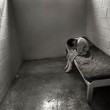By Moya Atkinson, former NASW-MD Executive Director, 
and members of the Social Workers against Prolonged Solitary
Confinement Task Force (SWAPSOL-TF)
Background
More than 80,000 prisoners are detained in solitary confinement in U.S. prisons at any one time, some for months, years and even decades. They live inside cramped, concrete, windowless cells for 22 to 24 hours a day and are frequently deprived of telephone calls, educational programs, contact visits and restricted exercise, often living in handcuffs and shackles. Suicide and self-harm are high, as is the rate of recidivism, and the cost of maintaining prisoners in isolation is much higher than that for prisoners in the general population. It is a torturous, cruel, and inhumane practice that violates United Nation conventions and is damaging to juveniles, transgender women, the elderly, people with disabilities, and those with mental illness.
Recommendation
The SWAPSOL Task Force members support the following recommendations that were made by the United Nations Convention Against Torture (UNCAT): “(a) Limit the use of solitary confinement as a measure of last resort, for as short a time as possible, under strict supervision and with the possibility of judicial review; (b) Prohibit any use of solitary confinement against juveniles, persons with intellectual or psychosocial disabilities, pregnant women, women with infants, breastfeeding mothers in prison; (c) Ban prison regimes of solitary confinement such as those in super-maximum security detention facilities; (d) Compile and regularly publish comprehensive disaggregated data on the use of solitary confinement, including related suicide attempts and self-harm (sec. 20, a-d).”
Background
NASW has a representative on the National Commission on Correctional Health Care (NCCHC), whose Board members represent national organizations in the fields of health, law and corrections. The mission of NCCHC is to improve the quality of health care in jails, prisons and juvenile confinement facilities. In 2010, Jeffrey L. Metzner, MD, and Jamie Fellner, Esq., authors of Solitary Confinement and Mental Health Illness in U.S. prisons: a challenge for medical ethics, advised NCCHC Board members to acknowledge that it is not ethically defensible for health care professionals to acquiesce silently to conditions of confinement that inflict mental harm and violate human rights, and that practitioners are ethically obligated, not only to treat segregated inmates with mental illness, but also to strive to change harmful segregation policies and practices and to mandate that mentally ill prisoners be excluded from extreme isolation. They should also help to implement: (a) Adoption by states and localities of their responsibility to ensure qualified and sufficient mental health staffing to provide the requisite screening, evaluation and treatment to aid in stabilizing patients’ mental health conditions and placement in the least restrictive environments; (b) Quality ongoing training of correctional staff at all levels; (c) Accreditation of facilities by experts; and (d) Rehabilitation of prisoners.
Recommendation
Task force members urge NASW to include the requests above as priorities in its “2015 Focus on Priorities,” with the goal of eliminating all prolonged solitary confinement and mass incarceration. This will require using considerable resources at the National and chapter levels.
Social workers and allied professionals are very welcome to join the SWAPSOL Task Force and to provide other support by contacting moyaatk@yahoo.com, 703-941-3707. Our website (a work in progress) is www.swapsol.org.
Recent articles directly relevant to social workers:
Mary E. Buser, LCSW, former Assistant Chief of Mental Health, Rikers Island, punitive segregation unit, described her personal experiences in an OpEd piece in The Washington Post (April 6, 2014), “Solitary Confinement’s Mockery of Human Rights,” which led to the creation of this Task Force.
Melvin Wilson, MBA, LCSW-C, NASW Manager of the Department of Social Justice and Human Rights, wrote an NASW blog, “A social work response to solitary confinement.” He also testified before the Senate Judiciary Subcommittee on the Constitution, Civil Rights and Human Rights, in “Reassessing Solitary Confinement: The Human Rights, Fiscal and Public Safety Consequences” in 2012.
Charles E Lewis, PhD, CEO of the Congressional Research Institute for Social Work and Policy, wrote two blogs: “When Solitary Confinement Becomes Torture,” and “Are Social Workers Helping Inmates Rot in Solitary Confinement?” in 2014.
References
Mendez, J. (2011). Solitary confinement should be banned in most cases, UN expert says. UN News Centre.
United Nations Committee against Torture (2014), Concluding observations on the third to fifth periodic reports of United States of America.











